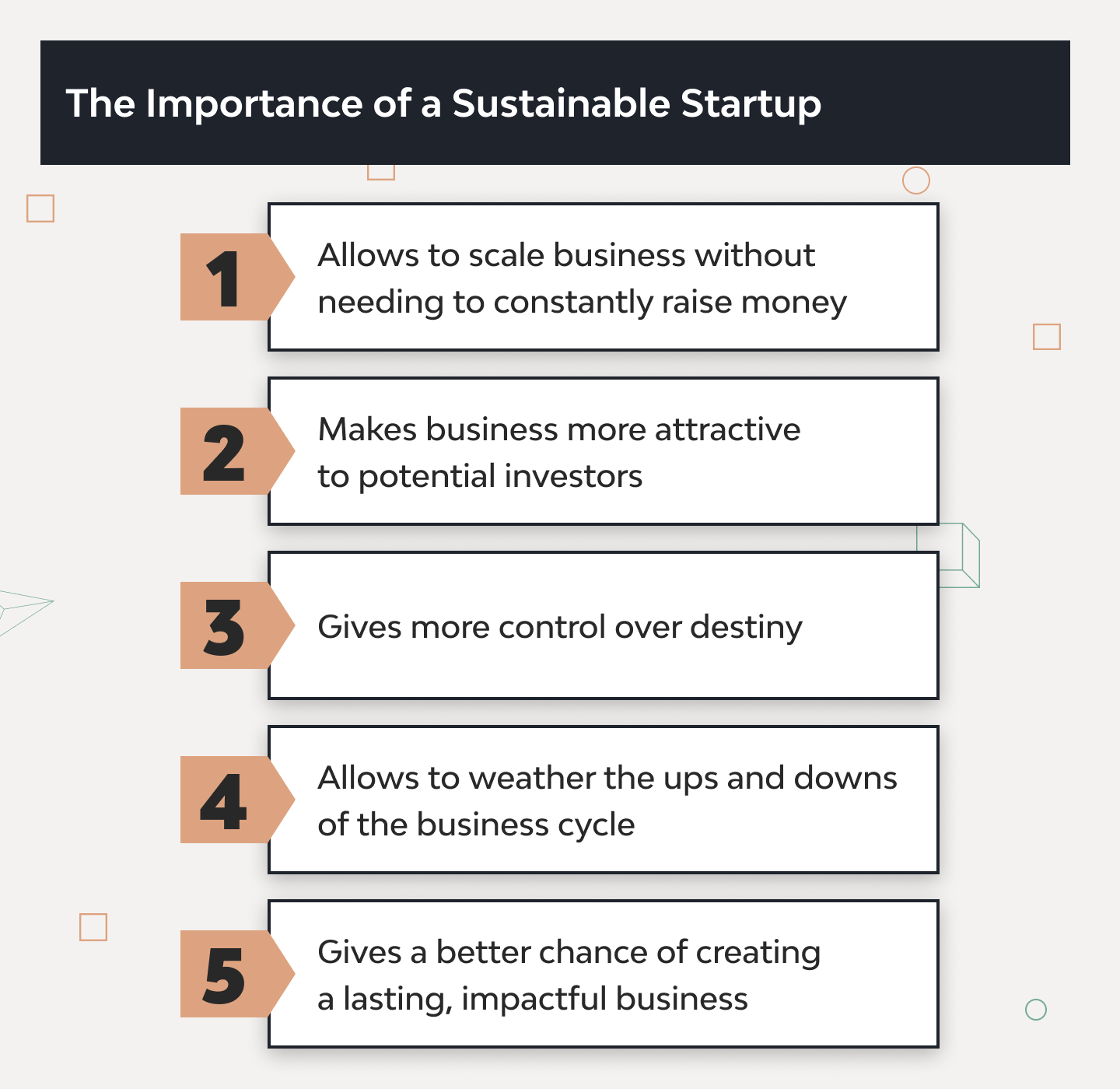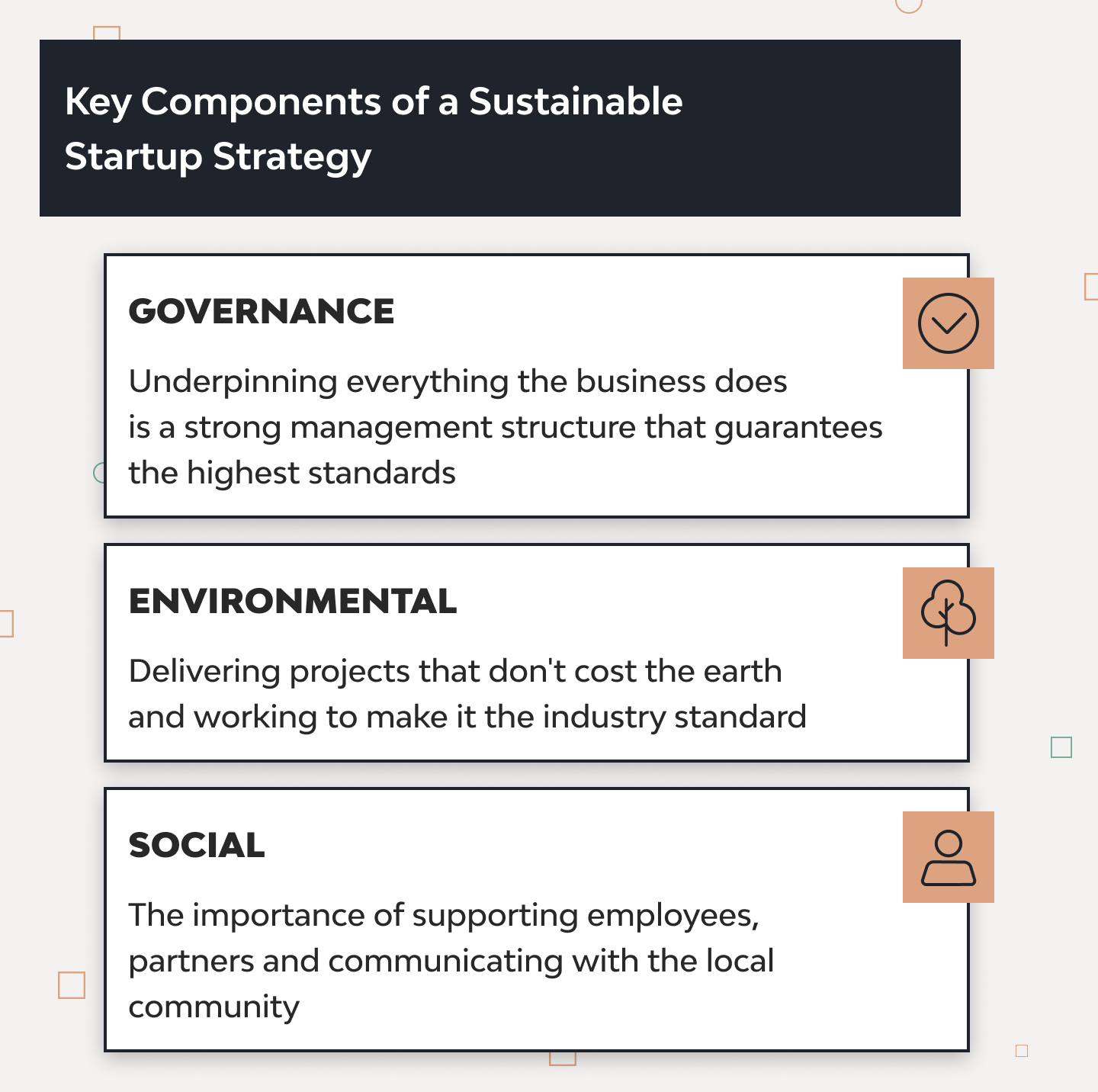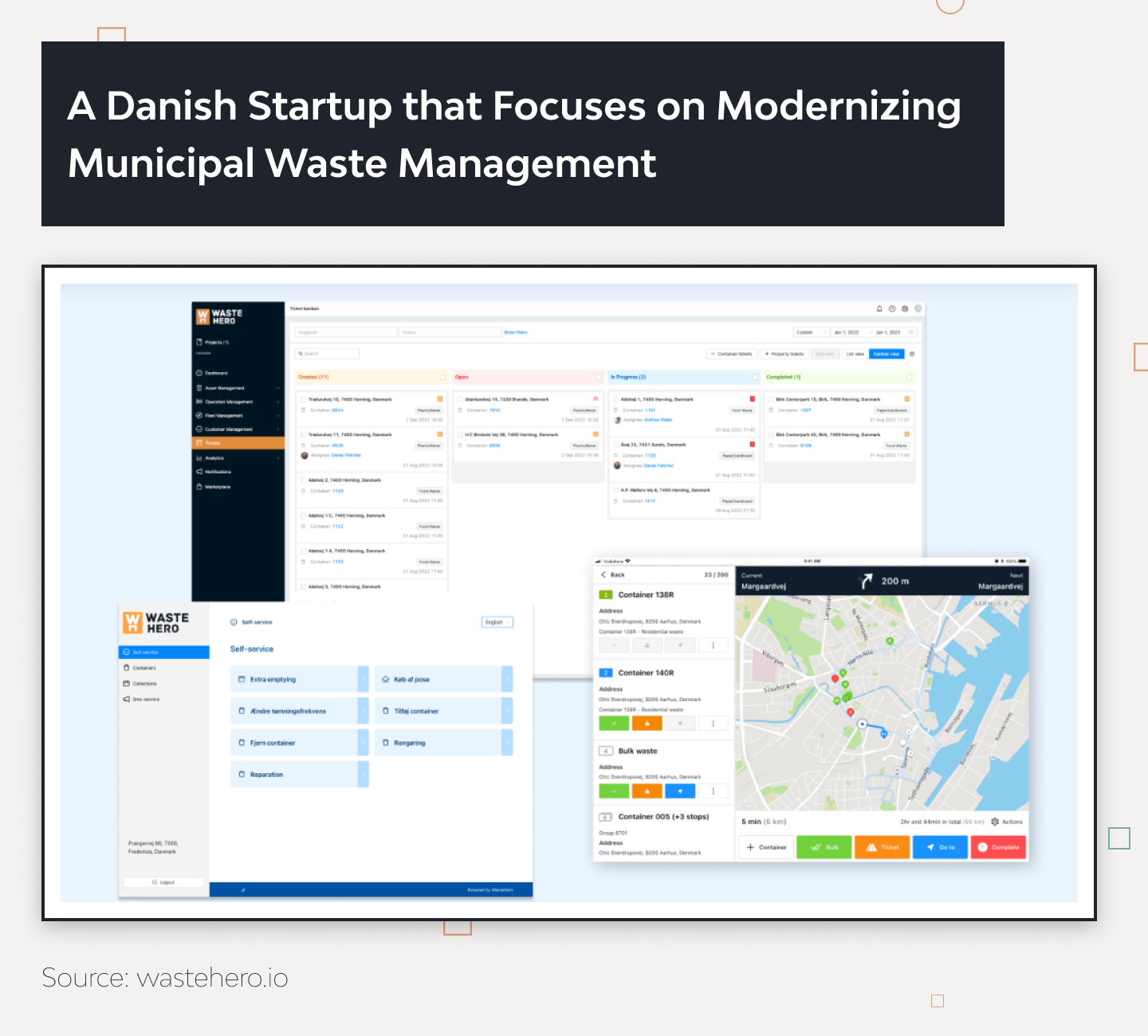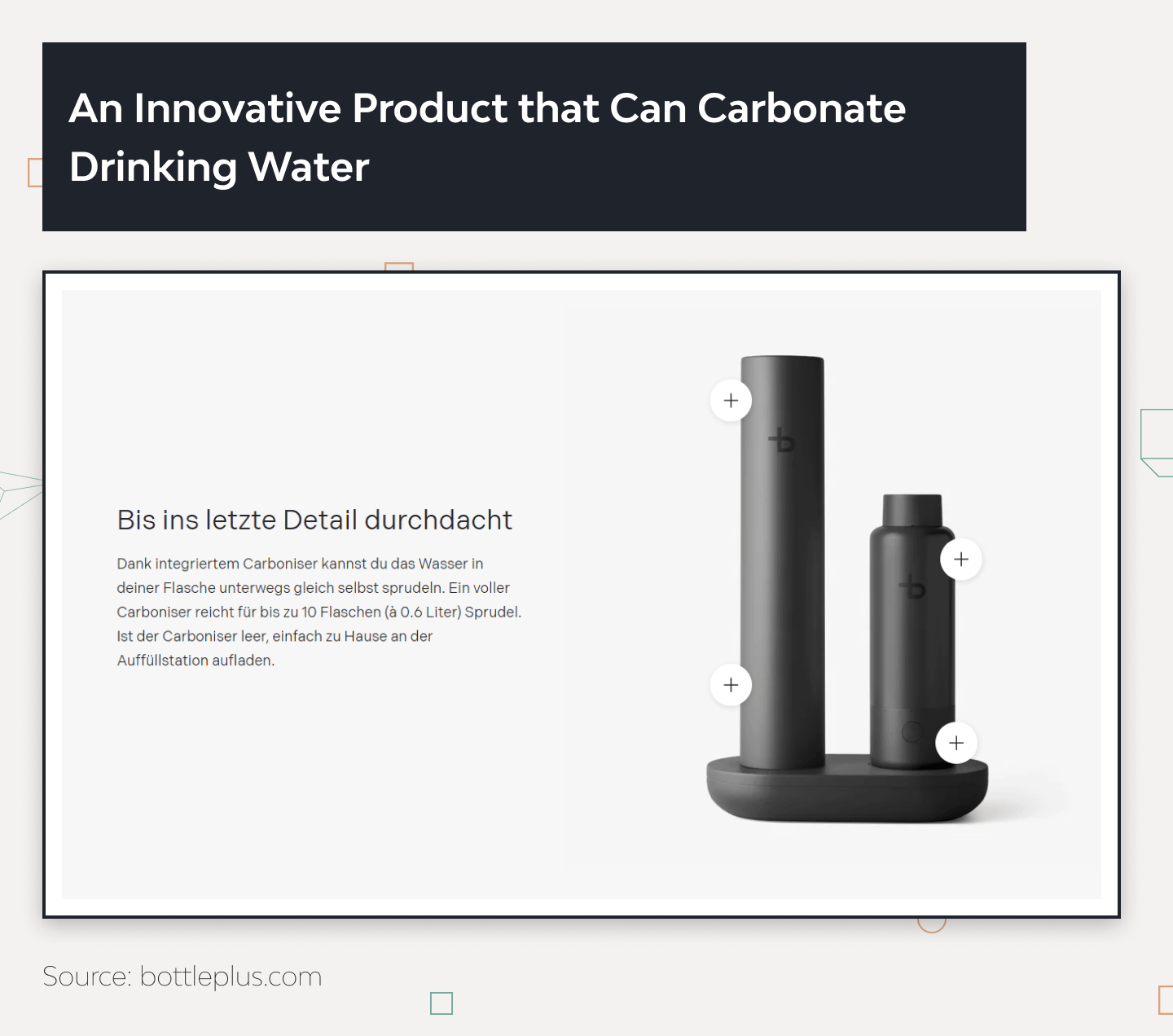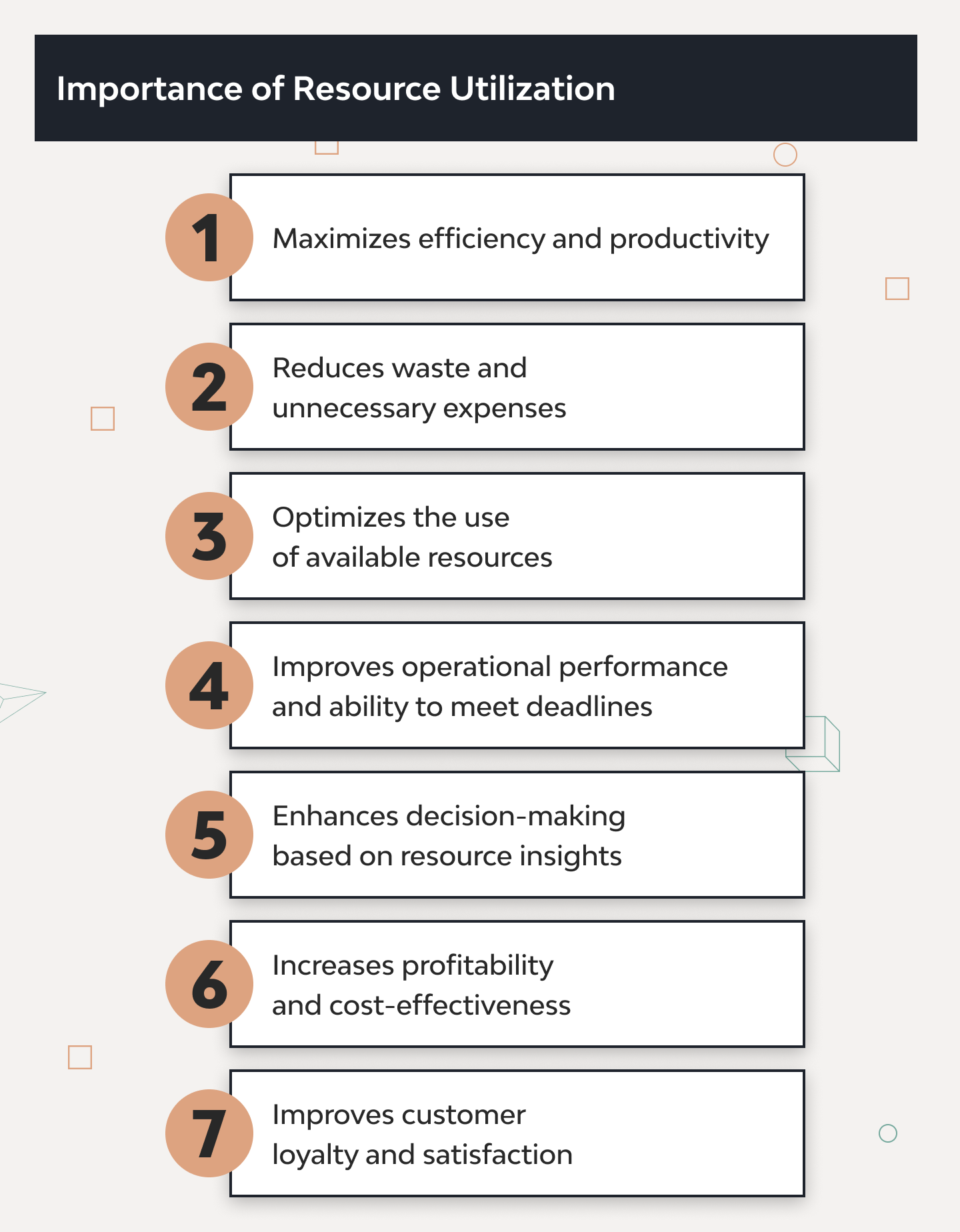Sustainable Development Strategies for Startups: Maximizing Efficiency from Inception to Success
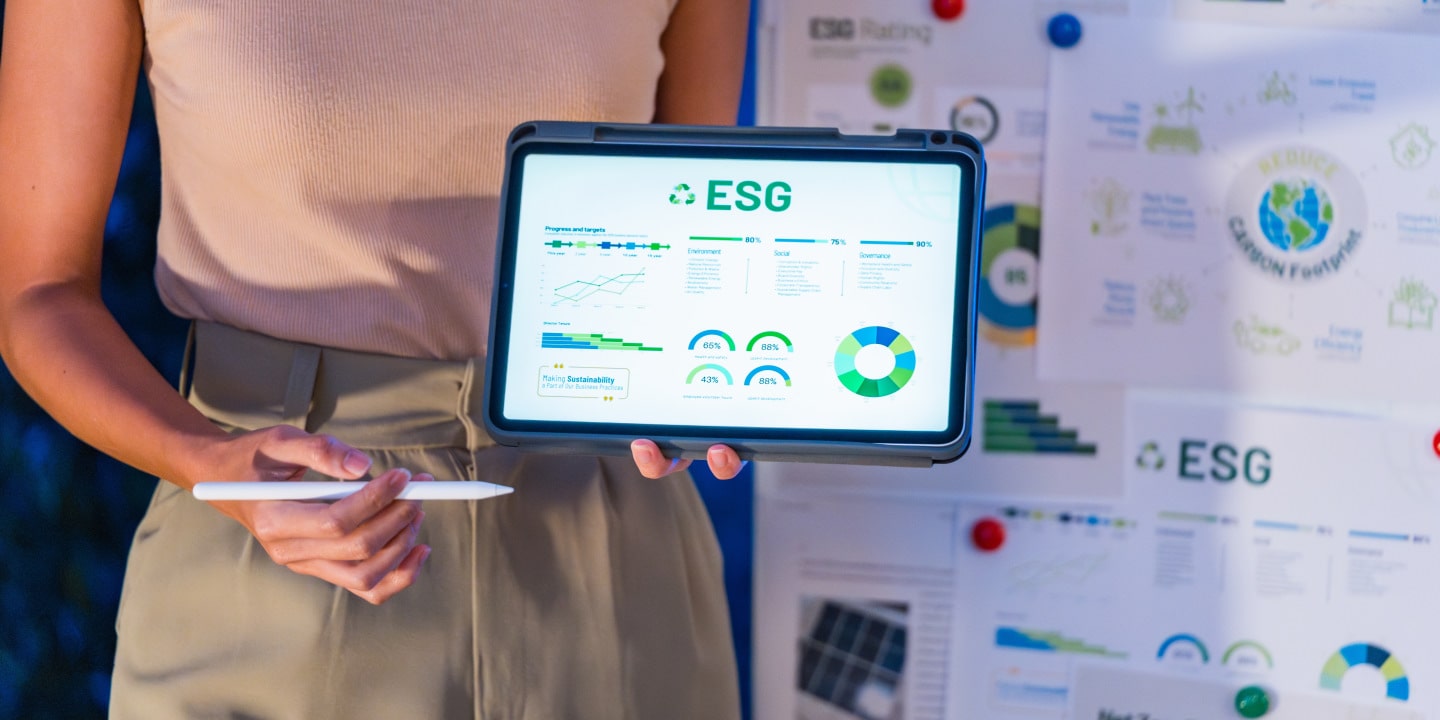
A sustainable startup is a business venture carefully developed to withstand the test of time. Its business model ensures gains, long-term profitability, and growth.
Sustainable startups are the engines of innovation, driving technological advancements and creating new business models that disrupt established industries. However, for startups to positively impact society, sustainability must be at the forefront of their development.
In this article:
- we’ll briefly define sustainability in the context of startup development;
- we’ll explore the unique challenges sustainable startups face in resource management;
- we’ll share our experience working with sustainable startup projects such as WasteHero, highlighting the importance of effective project management in achieving a sustainable business model.
By the end of this article, you’ll better understand sustainability’s role in startup development and the strategies required to build sustainable startups successfully.
Key Components of a Sustainable Startup Strategy
To create a sustainable startup, you will need a multifaceted ecosystem that balances financial, social, and environmental sustainability.
Financial Sustainability
A solid financial foundation is crucial for navigating the volatile business world. This involves comprehensively understanding the startup’s financial landscape, including its inflows and outflows, and leveraging MVP development services for startups to create a foundation for a profitable, sustainable business model.
A sustainable startup carefully plans its economic future by incorporating realistic revenue projections, cost management strategies, and contingency plans. An often overlooked yet critical component of financial sustainability is having a clear exit strategy that outlines a path for founders to transition the business, ensuring its longevity beyond their direct involvement.
Social Sustainability
The impact of a startup on society is not limited to the products or services it offers. It also includes its contribution to the community and the broader society. Social sustainability aims to create value beyond financial gains by addressing societal challenges and enhancing the quality of life.
This involves adopting ethical business practices, promoting a positive workplace culture, and engaging in community development initiatives. A socially sustainable startup’s team serves as its backbone — individuals who share a common vision and are committed to the company’s social and ethical objectives. Such startups attract customers and passionate employees who play a great role in driving the business forward.
Environmental Sustainability
As people become more aware of environmental issues, startups increasingly adopt practices that minimize their ecological footprint. These practices include using green technologies, optimizing resource use, and implementing sustainable operations and supply chain management.
Beyond reducing environmental impact, such practices can lead to new business opportunities and markets, particularly as consumers become more environmentally conscious. Educating employees and customers about the importance of environmental sustainability further amplifies a startup’s impact, fostering a culture of responsibility and innovation.
Startups have a unique chance to impact the world through sustainable practices. By integrating financial, social, and environmental sustainability into their core operations, startups ensure their longevity and contribute positively to the economy, society, and the planet. This holistic approach to business is about more than just strategies for sustainable startup growth. It’s about thriving in a way that respects and enriches all stakeholders, including the environment.
Proactive Project Planning in Startup Ventures
The adage “failing to plan is planning to fail” holds especially true in startups’ dynamic and unpredictable terrain. Proactive project planning is a strategic foundation that can significantly impact a startup’s trajectory. Early project considerations are essential in navigating the complexities of startup development, from ideation to market entry and beyond.
Significance of Early Project Considerations in Startup Development
In the early stages, startups face various decisions that can have long-lasting effects on their viability and success. Choosing the right technology stack, market entry strategy, and even the company culture are all decisions that benefit from early, careful planning.
Proactive project planning enables founders to anticipate challenges, allocate resources efficiently, and set realistic milestones. It also lays the groundwork for scalability, ensuring the startup can grow without being hamstrung by its initial framework or decisions.
Practical Ways Startups Can Integrate Project Planning from the Start
- Define Clear Objectives. Start with a clear, concise statement of the startup’s goals. This guides decision-making and helps keep the team aligned and focused.
- Conduct Market Research. Understanding the market is critical. Early research can validate the need for your product or service and inform your approach to meeting that need.
- Build a Scalable Business Model. Plan for the initial launch and growth. Consider how your business model can scale and what resources, technologies, and processes you’ll need as you grow.
- Implement Milestone-Based Planning. Break the project into phases, each with goals, deadlines, and KPIs. This step will make the project more manageable and help in tracking progress.
- Incorporate Flexibility. While planning is crucial, so is the ability to pivot. Incorporate flexibility into your plans to adapt to feedback, market changes, or unforeseen challenges.
- Engage in Risk Management. Identify potential risks early and develop mitigation strategies. Examples include financial, market, and operational risks.
Success Stories of Startups Benefiting from Strategic Thinking
Numerous startups have demonstrated the value of proactive project planning.
For instance, Waste Hero is a Danish startup that focuses on modernizing municipal waste management. Thanks to strategic planning and optimized resource management, WasteHero has partnered with Django Stars to achieve its business objectives.
Django Stars’ technical team developed a platform to enhance household waste removal efficiency. This platform assists municipal services in resource management, route optimization, monitoring waste container occupancy rates, and distributing the workload among drivers.
Waste Hero’s solutions address various environmental challenges, such as reducing fuel consumption by optimizing waste collection routes and increasing recycling rates by encouraging citizen participation in waste sorting. The successful launch of 360° SaaS Suite has significantly impacted sustainability, and Django Stars played a crucial role in bringing sustainable startup vision to life.
Bottle+ makes a reusable water bottle that can turn flat water into sparkling water by attaching a small CO2 tank to the bottom. The bottle will ultimately reduce the production of single-use plastic waste in landfills and oceans.
In addition to its eco-friendly benefits, it’s worth noting that Bottle+ is a great success story thanks to proper project planning. The team behind this startup has done a remarkable job of bringing their vision to life, and their efforts are paying off as more and more people become interested in their innovative product.
Daphne Technology is a company that focuses on solving the challenge of greenhouse gas emissions in industries that are difficult to decarbonize. Their innovative approach uses high-tech solutions to measure and reduce emissions from industrial sources.
Strategic thinking and proper project planning led Daphne to top awards, including the Top 100 Swiss Start-up (five times) and the Swiss Economic Award 2023.
Proactive project planning empowers startups to navigate the initial stages of development confidently, setting a solid foundation for future success. By integrating strategic thinking and planning from the outset, startups can survive the tumultuous early days and position themselves for sustainable growth and impact.
Rework Reduction for Sustainable Startup Growth
In the startup world, where agility and speed are often prized above all else, the concept of having to redo tasks due to errors or misjudgments can be exceptionally costly. Not only does it impact the immediate budget, but it also delays timelines and diverts resources from other potential innovations or improvements. Understanding the cost implications of rework and adopting strategies to minimize it are crucial for startups aiming for sustainable growth.
Cost Implications of Rework for Startups
Rework can significantly strain a startup’s limited resources. The costs are not merely financial. They extend to time wasted, opportunity costs, diminished team morale, and potential damage to customer relationships or market reputation.
In early-stage startups, where every moment and penny counts towards proving the concept and securing investors’ money, rework can be a critical setback. It dilutes focus from core activities and can lead to a vicious cycle of constant firefighting rather than strategic advancement.
Strategies to Minimize Rework and Maximize Efficiency
- Thorough Planning and Research. Comprehensive planning and research are essential before product development or market entry. They help clarify the requirements and set realistic expectations.
- Iterative Development. Adopting an iterative approach allows continuous feedback and improvements without significant rework. This method emphasizes developing in small, manageable increments and refining as you go.
- Quality Assurance (QA) Processes. Implementing robust QA processes early on can identify and address issues before they escalate into costly problems. This includes code reviews, user testing, and performance analytics.
- Effective Communication and Documentation. Clear communication among team members and with stakeholders can prevent misunderstandings that often lead to rework. Maintaining documentation of requirements, changes, and decisions also helps keep everyone on the same page.
- Leveraging Technology and Automation. The right tools and technologies can streamline operations, reduce manual errors, and thus decrease the likelihood of rework. Automating repetitive tasks frees up time for value-added activities.
Rework reduction is a strategic approach to creating sustainable startups that are more resilient, adaptable, and sustainable. By prioritizing efficiency and quality from the outset, startups can avoid the pitfalls of rework and set a solid foundation for long-term success.
Efficiency in Resource Utilization for Startup Success
For startups, the efficient use of resources is a survival strategy. Linking the sustainability of new business ventures in development with efficient resource utilization allows startups to maximize their impact while minimizing waste, thereby ensuring a lean operation that can adapt and grow in the face of challenges. This approach to resource efficiency is fundamental for startups looking to succeed in a competitive market.
Linking Sustainability for Your Startups to Efficient Resource Use
A sustainable startup is important because it maximizes every resource while reducing unnecessary financial and environmental waste. This approach goes beyond physical resources and includes time, talent, and technology.
Efficient resource utilization maintains a lean operational model, navigates the uncertain early stages of a startup’s lifecycle, and ensures sustainable growth as the business scales up.
Actionable Tips for Startups to Optimize Resource Utilization
- Embrace Remote Work. Utilizing remote work can significantly reduce overhead costs while tapping into a global talent pool. This approach lowers office space needs and can increase productivity and employee satisfaction.
- Adopt Cloud Computing. Cloud services offer scalable and efficient solutions for data storage, software development platforms, and infrastructure needs, allowing startups to pay only for what they use and scale as needed.
- Lean Inventory Management. Startups producing physical products can adopt a lean inventory management system to minimize storage costs and reduce waste by aligning production closely with demand.
- Implement Energy-Efficient Practices. Reducing energy consumption cuts costs and aligns with environmental sustainability goals. Simple measures like using energy-efficient appliances and encouraging conservation practices can significantly impact.
- Optimize Team Productivity. Utilizing project management tools and fostering a culture of efficiency can ensure that team efforts are directed towards high-impact activities, minimizing wasted time and maximizing output.
Showcasing Real-World Examples of Resource-Efficient Startups
Sharely is a rental platform that optimizes resource utilization. Its mission is to enable people to rent everything they infrequently need locally. It has only 4 employees and uses 10 technologies for its website, including Apple Mobile Web Clips Icon and Google Maps.
Sophia Genetics was a startup that uses artificial intelligence to analyze genomic data, reducing the need for manual analysis and increasing efficiency in healthcare.
Beekeeper is a startup that provides a digital platform for communication and collaboration among employees, reducing paper usage and travel time.
Nomoko is a startup that uses advanced imaging technology to create digital twins of buildings and cities, reducing the need for physical inspections.
Efficiency in resource utilization is a multifaceted strategy encompassing financial management, operational practices, and environmental stewardship. For startups, adopting best practices of this integrated approach fosters sustainable growth and builds a foundation for long-term success in an increasingly conscious market.
By learning from the examples of resource-efficient startups and applying practical tips, emerging businesses can navigate growth strategy challenges while maintaining their commitment to sustainability and efficiency.
Conclusion
Navigating the startup ecosystem demands a sustainable approach to development that emphasizes efficiency, resilience, and responsibility.
Throughout this exploration, we’ve delved into the critical components to develop a sustainable startup strategy, emphasizing financial prudence, social impact, and environmental stewardship.
We’ve also uncovered the significance of proactive project planning, the detrimental effects of rework, and the paramount importance of efficient resource utilization.
As we reflect on these insights, the key takeaway is that sustainable development for startups should be embedded into the very foundation of their operations. By combining these efforts with a well-structured discovery phase in software development, startups can validate ideas early, boost their chances of immediate success, and strengthen their ability to remain resilient amid market changes and evolving societal demands.
Django Stars can provide valuable expertise and guidance in software development for startups, which encompass ethical choices and competitive advantages to stand out in crowded markets.
Contact our team of experienced professionals if you are seeking assistance in identifying opportunities for efficiency, waste reduction, and maximizing social impact.
Leveraging cutting-edge technology and innovative solutions, best payment gateway for startups, custom mobile apps, supply chain platforms, and CRM systems are among the key services, Django Stars empowers startups to contribute to building a business model capable of sustaining long-term growth and success.
- Why is having a sustainable startup important?
- We build sustainable startups to navigate the challenges of limited resources, market competition, and environmental impact with foresight and responsibility.
- How can startups get started with sustainable development?
- Startups can begin by assessing their current operations to identify areas for sustainability improvement, such as reducing energy consumption, optimizing resource use, or enhancing their social impact.
- How can startups measure the success of their sustainability efforts?
- Depending on the startup's sustainability goals, success can be measured through various metrics. These include reduced energy consumption or waste, improved employee satisfaction and retention, and positively impacting the local community.
- Are there any funding or resources available for sustainable startups?
- Resources and funding opportunities include grants, venture capital funds focused on sustainable investments, and government incentives to support green businesses.
- What steps should a startup take to become more environmentally sustainable?
- The first step is conducting an environmental impact assessment to understand the startup's current footprint. Following this, startups can prioritize actions with the most significant impact, such as reducing energy use, minimizing waste, and sourcing sustainable materials.

